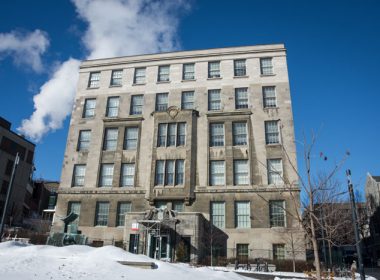Unexpected news. This was what kept students glued to TVs and computer screens on Nov. 8, despite upcoming midterms looming in the background. After a week to digest the election results, what’s inevitably come up among U.S. citizens, even if jokingly, has been the topic of immigrating to Canada. Of course, it may also be the magic of the Montreal Canadiens or this city’s affordable rent that invites students to settle down here. Whatever the reason, below are just some of the ways a foreign national can extend their stay in Quebec, either temporarily or permanently.
A temporary permit for a worker or a student staying in Quebec is called a certificate of acceptance (CAQ). Foreign nationals studying at McGill most likely hold a CAQ for studies. With a CAQ, a foreign national may apply to extend their studies, to obtain a work permit, or to obtain permanent residency.
How may a person extend their period of study?
If a person wishes to extend or change their level of studies beyond the expiry date of their current CAQ, they must file a new application for a CAQ for studies. This may be done online or by mail. It is recommended by many universities to do this several months preceding the expiration of the current study permit.
How to obtain a post-diploma work permit?
If a person wishes to extend their stay after receiving their diploma, they may apply to Citizenship and Immigration Canada for an open work permit. This is called the Post-Graduation Work Permit Program (PGWPP). A person must already have a study permit and have continuously studied full-time for at least eight months before applying for a work permit. A person must apply within 90 days of receiving notice from their educational institution indicating that they have satisfied all the requirements for obtaining the diploma. Also, an applicant who doesn’t meet full-time status in their final academic semester, but is otherwise eligible, may still apply. Note that this type of permit is only valid for a maximum of three years. However, the permit cannot exceed the length of the program of study of the student. For example, if the academic program lasted two years, the work permit will also only last two years.
This application can be filed online through the Citizenship and Immigration Canada website.
How to obtain permanent residency in Quebec?
There’s a difference between the selection and the admission of permanent residents. The Quebec provincial government retains sole authority in the selection of permanent residents destined for their province. Being “selected” by the Quebec government means that the province wants the applicant to stay in the country; however, the province doesn’t have the authority to allow someone to stay—that is to say, the Quebec government cannot issue permanent residency visas. The Canadian federal government is responsible for the admission of permanent residents and therefore is the authority that will issue the visa. So, to apply for permanent residency, a person must first apply to the Quebec provincial government for a selection certificate (CSQ), and then submit an application for permanent residence to Citizenship and Immigration Canada.
Applying for a CSQ
A foreign national who is either studying or working temporarily in Quebec and who wishes to settle permanently in the province must apply for a CSQ under the category of what is called a “skilled worker.” This application must be submitted while the person is still staying in Quebec.
Someone holding a study or work permit may apply for a CSQ through the Quebec experience program (PEQ)—an accelerated program to obtain a CSQ. However, the criteria are more onerous than through the regular selection program for skilled workers. Someone not eligible to apply through the PEQ may still apply for a CSQ through the regular program.
Qualifying for the PEQ
Like Quebec experience program name suggests, one criteria for acceptance is that the applicant must have the intention of settling and working in Quebec. As the program promotes successful integration into the province, the government will also require the applicant to promise to provide for their needs as well as the needs of their immediate family for at least the first three months after acceptance. Furthermore, the applicant needs to show advanced intermediate knowledge of oral French. Finally, the applicant needs to have respected all the conditions of their current work or study permit.
Depending on whether the PEQ applicant is currently holding a work or study permit, there are other conditions. For example, a PEQ applicant with a study permit must have a diploma or expect to complete their study program within six months of submitting their PEQ application. In any case, the application needs to be submitted no later than 36 months after the program of study has ended. For someone with a work permit who wishes to apply for the PEQ, they need to have held a job for 12 months over the last two years before the PEQ application. In addition, they must currently be working a job at the time of their application.
Applying for permanent residency
Once a person has obtained a CSQ, they may apply to Citizenship and Immigration Canada to become a permanent resident as a skilled worker selected by the provincial government of Quebec.
Even though Quebec has selected the candidate, Citizenship and Immigration Canada still has the right to refuse to issue a selection certificate. The application might be refused if Citizenship and Immigration Canada believes that the applicant does not actually intend to settle in Quebec.
It’s important to note that immigration law is complicated, and decisions depend on the discretion of the official reviewing the file; requirements thus vary case-by-case. Moreover, there may be other eligibility concerns. For immigration advice, please contact a lawyer. Taking the time early on to learn about the law may be beneficial when everybody is scrambling to stay on the north side of the border (or wall).
To inquire further about these processes, or to ask your own legal question, contact the Legal Information Clinic at McGill (LICM) with the directions found on our website. According to the Act respecting the Barreau du Québec, only lawyers and notaries can provide legal advice or counsel. The LICM, therefore, only provides legal information. For legal advice, please contact a lawyer.










If you want more information on how to turn your student visa into permanent residency and eventual citizenship, here’s how it works: http://15miles.info/move-to-canada/
I am a young lady I am living in Afghanistan , I am 14 years old,I have two brothers and one sister and my mother, my father passed away and living in Afghanistan is really hard for us my siblings are all younger than me and they can’t have any job, I also can’t go outside because of the Talibans.
Please help me and my family for immigration in Canada!
How much does it cost to apply for immigration after being selected by an institution? What a student should do if he wants to do part time job during the tenure of his studies, is it possible to do this or not?
I am a young lady and I am living in Afghanistan with my mother and my siblings my father passed away 9 years ago and after the Talibans living in Afghanistan is really hard, my mother has kidney disease and we are not able to buy her medicine, me and my siblings we are all underage, please help us for immigration in Canada!!